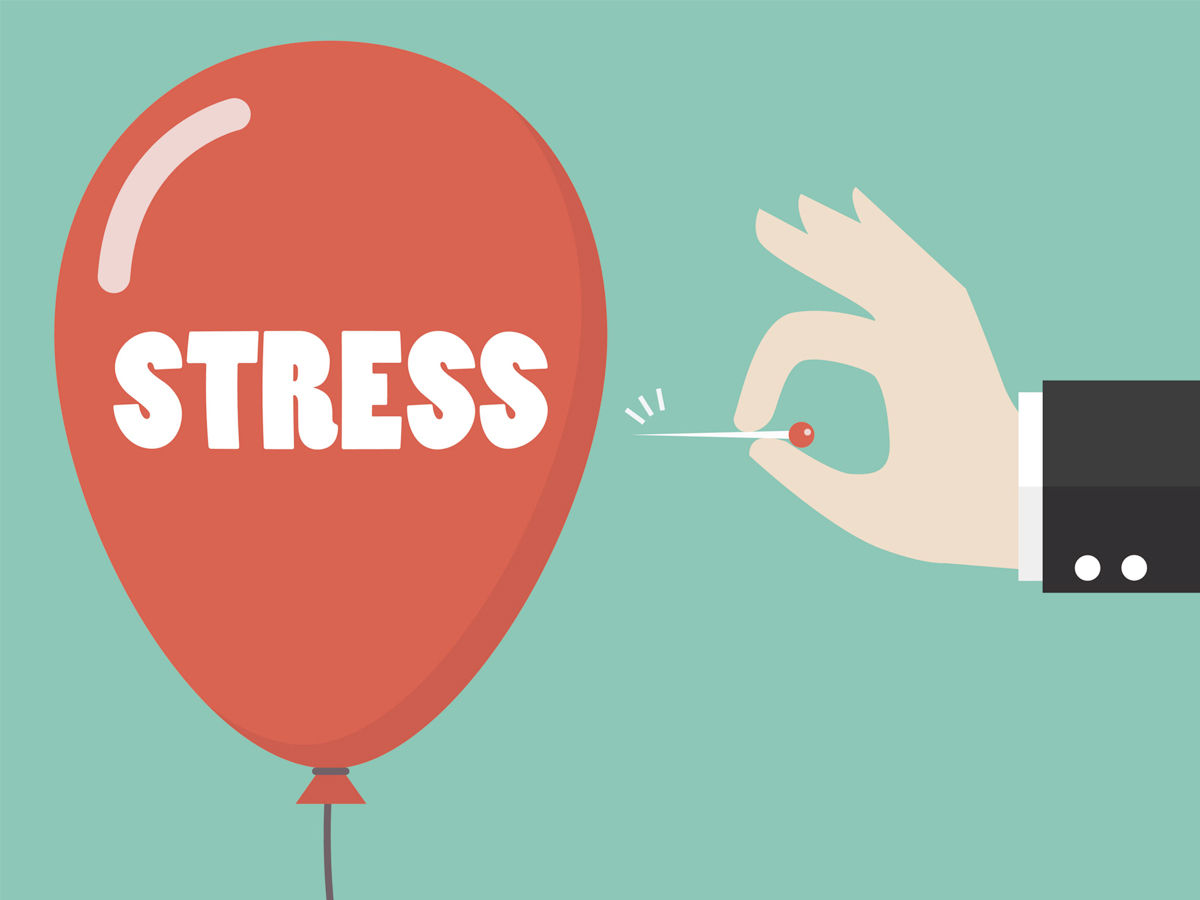A sense of mental or physical tension is stress. Any incident or thought that makes you feel upset, furious, or anxious will come from it(Distress). Stress is the response of the body to a threat or demand. Stress can be positive in small bursts, such as whether it lets you escape risk or reach a deadline(Eustress)
Stages of Stress
Alarm Stage: When under threat, the alarm reaction stage refers to the initial effects that the body encounters. In dangerous situations, this natural reflex trains you to either escape or defend yourself(Flight or Fight Response). Your heart rate raises, cortisol (a stress hormone) is released by your adrenal gland, and you get an adrenaline rush, which enhances stamina. For example- During an examination, a student goes through multiple emotions, if the student doesn’t know a specific question, the student starts to feel scared and nervous and at that point, the individual is in the warning stage of stress because something has just begun to panic him/her and they feel a fight or flight sort of mentality. It is the start-up stage that determines the first stressor response.

Resistance Stage: To be better explain this stage, let’s use an example. Let’s say Mark is in the middle of an examination and he comes across a very tough question. He makes full attempts to deal with the situation and his whole body is involved in the fight against the situation. The first step of resistance is this. The body tries to make constant attempts at this point to deal with discomfort and therefore feels worn down and drained. The person begins to feel frustrated, overreacts to small circumstances, and becomes weak mentally and physically. There are also distinctly noticeable psychological, physical, and behavioural shifts. The body continues to heal itself after the initial trauma of a stressful event and after getting a fight-or-flight reaction. It releases a smaller level of cortisol, and it starts to normalize the pulse rate and blood pressure. Although the body reaches this process of regeneration, it stays for a while on high alert.

For long periods, certain stressful situations continue to hinder our minds. Our Mind gradually adapts and learns how to cope with a higher degree of tension. If you don’t overcome the tension, the body stays on high alert. At this point, to cope with stress, the body goes through changes that you are unaware of.
The tension hormone continues to be secreted by your body and blood pressure stays high. You may assume that you manage stress well, but the physical reaction of your body says a different story. This will progress to the exhaustion stage if the resistance stage lasts for too long a time without pauses to mitigate the impact of stress.
Exhaustion Stage: The product of prolonged or persistent stress is this phase. Struggling with stress for long stretches will exhaust your physical, emotional, and mental energy to the point that your body no longer has the power to combat stress. The person might give up or feel that their condition is hopeless. Exhaustion stage symptoms include fatigue, burnout, exhaustion, anxiety, and diminished resistance to stress. This stage’s physical effects often weaken the immune system and place you at risk of stress-related diseases. If a student is studying for his exam and he is not able to contribute to his studies despite any possible effort, he is likely to get depressed. The tension may reach a height where, to the degree of committing suicide, he/she could feel completely drained and powerless. This Stage is called Exhaustion Stage. This stage is further divided into 2 Phases:
I. Initial stage: The tension continues and the individual is unable to focus and work properly because of the lack of adequate steps.
II .Burnout: All energy reserves are completely depleted and drained by the person. A total physical, neurological, and mental breakdown is taking place. This calls for instant action.


























